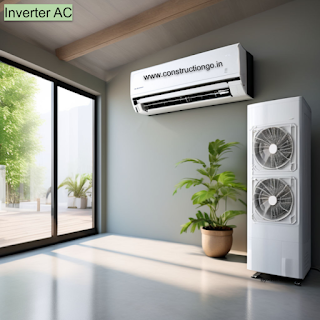Inverter air conditioning is a type of air conditioning system that uses a variable-speed compressor motor to control the temperature more effectively. Traditional air conditioners operate on a fixed-speed
compressor that either turns on or off to maintain the desired temperature. In contrast, inverter air conditioners can adjust the compressor speed continuously, allowing them to maintain a more consistent temperature and achieve energy savings.
Here are some key points about inverter air conditioning:
1. Energy Efficiency: Inverter AC units are generally more energy-efficient compared to traditional non-inverter models. The variable speed compressor allows the system to use only the amount of energy needed to cool or heat a space, rather than operating at full capacity all the time.
2. Electricity Savings: The actual savings in electricity consumption depend on various factors, including the size of the space being cooled or heated, the efficiency of the unit, and how often the system is used. Inverter ACs are known for providing energy savings, especially during partial load conditions when the compressor doesn't need to operate at full capacity.
3. Power Requirements: In terms of power requirements, inverter air conditioners may use less power compared to non-inverter models to achieve the same cooling or heating effect. However, the specific power requirements can vary based on the model, brand, and capacity of the air conditioner.
4. Consistent Temperature: Inverter technology allows the air conditioner to adjust its output based on the current conditions, leading to a more consistent and comfortable indoor temperature. This is in contrast to non-inverter units, which may experience more temperature fluctuations.
5. Initial Cost: While inverter air conditioners are generally more energy-efficient, they may have a higher initial cost compared to non-inverter models. However, the potential energy savings over time can offset this initial investment.
When considering an inverter air conditioner, it's essential to look at the specific model's energy efficiency rating, capacity, and other features. Additionally, proper sizing and installation are crucial for optimizing energy efficiency and performance. Consulting with a professional HVAC (heating, ventilation, and air conditioning) technician can help you choose the right system for your needs and ensure proper installation.

